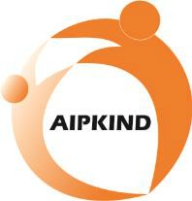The Relationship between Parenting and Stimulation with The Development of Toddlers Aged 1-3 Years
Abstract
About 10 million children die and more than 200 million children develop not according to their potential triggered by parental care and stimulation. It’s estimated that about 1-5% of children under 5 years of age experience generalized developmental delays. The purpose of this study was to determine the relationship between parenting and stimulation to the development of toddlers aged 1-3 years in the working area of Koto Panjang Ikua Koto Public Health Center Padang City. This type of research is quantitative with a Cross Sectional design, carried out in the Working Area of the Koto Panjang Ikua Koto Health Center, Padang City from September 2021 to October 2022. The sample from the study was mothers with toddlers aged 1-3 years as many as 76 people. The technique used is multistage random sampling, for data collection using the KPSP, PSQ, and Stimulation questionnaires. Univariate and bivariate data analysis using Chi-Square analysis (p<0.05). The results showed that 94.7% of children spent 24 hours with their parents, 51.3% of children had normal development, 80.3% of parents provided good stimulation and 63.2% of parents with democratic parenting styles. The results of the bivariate analysis showed that there was a relationship between parenting style and the development of children aged 1-3 years (p=0.000) and there was a relationship between stimulation and the development of children aged 1-3 years (p=0.000). Parenting parents who are democratic and good stimulation affect the optimal development of toddlers. It is hoped that the government can make policies related to parenting classes so that parents can provide good parenting and stimulation for children's growth and development.
Keywords
Full Text:
PDFReferences
Bappenas “Peraturan Menteri Perencanaan Pembangunan Nasional 2 tahun 2020 tentang Perubahan Atas Peraturan Menteri Perencanaan Pembangunan Nasional / Kepala Badan Perencanaan Pembangunan Nasional” 2015.
Kemdikbud RI, “Anak Pada Masa Golden Age Period,” 2017. .
Kemenkes RI, Tumbuh Kembang Optimal dengan Stimulasi, Deteksi dan Intervensi Dini Tumbuh Kembang, vol. 1, no. 4. Jakarta: Kementrian Kesehatan RI, 2018.
T. Windiarto, Profil Anak Indonesia Tahun 2020. Jakarta: Kementerian Pemberdayaan Perempuan dan Perlindungan Anak, 2020.
D. Adriana, Tumbuh Kembang & Terapi Bermain Anak-Dian Adriana (book). Jakarta: Salemba Medika, 2017.
Soetjiningsih, Tumbuh Kembang Anak, Kedua. Jakarta: EGC, 2015.
A. Rahmidini, “Hubungan stunting dengan perkembangan motorik dan kognitif anak,” Semin. Nas. Kesehat., vol. 2, no. 1, pp. 90–104, 2020, [Online]. Available: http://www.ejurnal.stikesrespati-tsm.ac.id/index.php/semnas/article/download/272/192.
S. Mudlikah, S. Hamida, and N. A. Mala, “Penerapan Massase Untuk Mencegah Keterlambatan Perkembangan Motorik Kasar Pada Bayi Usia 0-12 Bulan Di Desa Jatikalang Kec. Prambon Kab. Sidoarjo,” DedikasiMU(Journal Community Serv., vol. 2, no. 3, p. 463, 2020, doi: 10.30587/dedikasimu.v2i3.1650.
UNICEF, “For Every Child, Reimagine UNICEF Annual Report 2019,” 2019, [Online]. Available: www.unicef.org/indonesia.
World Health Organization, “World Health Statistics 2016 Monitoring Health For The SDG’s,” World Heal. Organ., p. 1.121, 2016.
I. Nurhidayah, R. G. Gunani, G. G. Ramdhanie, and N. Hidayati, “Deteksi Dan Stimulasi Perkembangan Sosial Pada Anak Prasekolah: Literatur Review,” J. Ilmu Keperawatan Anak, vol. 3, no. 2, pp. 42–58, 2020, doi: 10.32584/jika.v3i2.786.
“Deteksi dan Stimulasi Perkembangan Sosial pada Anak Prasekolah,” Ikat. Dr. Anak Indones., 2018, [Online]. Available: https://www.idai.or.id/artikel/seputar-kesehatan-anak/mengenal-keterlambatan-perkembangan-umum-pada-anak.
IDAI, “Mengenal Keterlambatan Umum pada Anak,” Ikatan Dokter Anak Indonesia, 2017. .
Dinas Kesehatan Propinsi JawaTimur, “Profil Kesehatan Propinsi Jawa Timur 2017,” Provinsi Jawa Timur, Dinkes, vol. 34, no. 11, pp. e77–e77, 2017.
I. J. Sukiman, N.L., B.Ali., M.Faizul., M. Sabri., Menjadi Orang Tua Hebat Untuk Keluarga dengan Anak Sekolah Dasar. Jakarta, 2016.
A. . Permata, “Pola Asuh Orangtua Terhadap Perkembangan Anak Balita Usia 1-5 Tahun di Wilayah Kerja Puskesmas Rawang Kota Padang,” 2020.
K. Kesehatan, Pedoman Pelaksanaan Stimulasi, Deteksi dan lntervensi Dini Tumbuh Kembang Anak. 2016.
G. A. M. Armini, N.W., N.G.K. Sriasih., Asuhan Kebidanan Neonatus,Bayi & Balita, Pertama. 2020.
D. S. S. Saputri, L.A., Y.Rustam., “Hubungan Stimulasi Orang Tua Dengan Perkembangan Anak Balita Usia 12-36 Bulan,” J. Ilm. PANNMED (Pharmacist, Anal. Nurse, Nutr. Midwifery, Environ. Dent., vol. 7, no. 2, 2020, doi: 10.36053/mesencephalon.v7i2.287.
Dinkes Sumbar, Riset Kesehatan Dasar Provinsi Sumatera Barat Tahun 2018. Jakarta, 2018.
D. Padang, “Profil Kesehatan Tahun 2020,” Dinas Kesehat. Kota Padang, 2021.
N. Khairani, S. Sanisahhuri, and F. P. Yinisah, “Tingkat Pendapatan Keluarga, Pola Asuh Orang Tua Stimulasi Perkembangan Dan Perkembangan Balita,” PREPOTIF J. Kesehat. Masy., vol. 4, no. 1, pp. 27–34, 2020, doi: 10.31004/prepotif.v4i1.571.
S. Atin, S.R.P., “Hubungan Pola Asuh Orang Tua dengan Perkembangan Anak Balita di Wilayah Kerja Puskesmas Ranoemeeto Kabupaten Konawe Selatan Tahun 2018,” Dr. Diss. Poltekkes Kemenkes Kendari, vol. 53, no. 1, pp. 1–8, 2018, [Online]. Available: http://www.tfd.org.tw/opencms/english/about/background.html%0Ahttp://dx.doi.org/10.1016/j.cirp.2016.06.001%0Ahttp://dx.doi.org/10.1016/j.powtec.2016.12.055%0Ahttps://doi.org/10.1016/j.ijfatigue.2019.02.006%0Ahttps://doi.org/10.1016/j.matlet.2019.04.024%0Aht.
S. Y, Buku Ajaran Konsep Dasar Keperawatan Anak. Jakarta: EGC, 2014.
I. Nurrahmi, S., “Pemberian Stimulasi Oleh Ibu Berhubungan dengan Perkembangan Anak Usia 1-3 Tahun di Wilayah Kerja Bidan Desa Kertaharja,” J. Holistics Heal. Sci., vol. 2, pp. 246–255, 2021.
O. Warsito, A. Khomsan, N. Hernawati, and F. Anwar, “Relationship between nutritional status, psychosocial stimulation, and cognitive development in preschool children in Indonesia,” Nutr. Res. Pract., vol. 6, no. 5, pp. 451–457, 2022, doi: 10.4162/nrp.2012.6.5.451.
DOI: https://doi.org/10.31983/jkb.v13i2.9413
Article Metrics
Refbacks
- There are currently no refbacks.
Abstracted/Indexed by:
Jurnal Kebidanan by http://ejournal.poltekkes-smg.ac.id/ojs/index.php/jurkeb is licensed under a Creative Commons Attribution-ShareAlike 4.0 International License.
View My Stats aw
.png)
.png)




.png)





